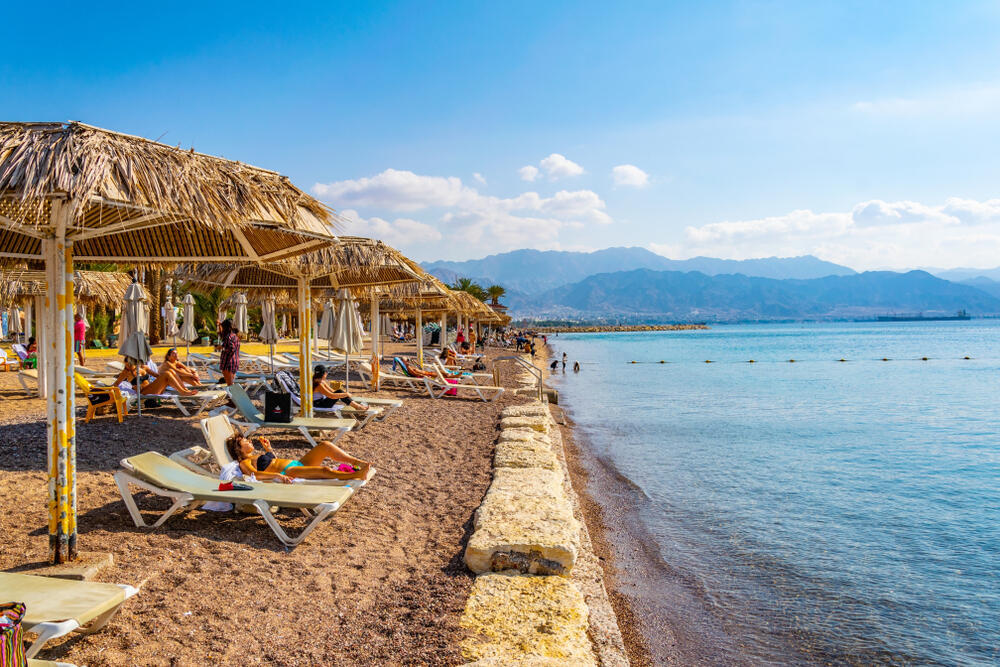Getting your Trinity Audio player ready...
If you visited the southern port city of Eilat at the start of the conflict in Gaza, you would have encountered a deserted and somber ghost town, primarily inhabited by evacuees confined to their hotel rooms. Fast forward eight and a half months, and Israel’s tourism capital is buzzing with life once again. Surprisingly, even before the summer vacation season kicks off, hotel occupancy in the city is at a remarkable high for this time of year – between 85% and 90%.
Since October 7, many Israelis have opted out of vacations abroad. Although Ben Gurion Airport has seen a resurgence in recent months, it hasn't reached pre-war levels. With many guesthouses and B&Bs in the north unavailable due to the conflict with Hezbollah, Eilat has emerged as the top choice for locals seeking a brief escape from the current situation.
Isrotel CEO Lior Raviv is optimistic."2024 will be the year of the Israelis. A year of domestic tourism. Domestic tourism is stronger than I can recall. We began June with an average occupancy of over 80% in our hotels. Right now, we have a very strong summer in Eilat. The 80% occupancy in our hotels reflects a 10%-15% increase compared to a typical June," he said.
What is driving this resurgence?
"The cost of flights abroad, even low-cost ones, is no longer that affordable. Cases of antisemitism around the world are on the rise, tourism in the north has stalled, and accommodations there are not operational. All these factors contribute to the high demand for hotels in the country. And it’s not just in July-August; we are also seeing high demand for the upcoming Tishrei holidays. Our prices are not more expensive than in previous years, in Eilat or elsewhere. By the way, most of the evacuees are no longer in Eilat; only a few hundred remain in the Lagoon and Riviera Club, where they are concentrated as a single community."
Eilat's night life
(Video: Assaf Kamar)
Is there still a shortage of workers?
"Before the war, we had 400 Palestinian workers, and we miss them today. Our main problem is the severe shortage of workers alongside the high demand. Currently, we are supported by 1,500 workers from Jordan; without them, I don’t know how we would handle full occupancy."
Meanwhile, it seems the crisis is on its way to being resolved, as the Ministry of Tourism, led by Minister Haim Katz, announced the addition of 2,000 new positions for foreign workers from tourism-based countries, who will immediately integrate into work in the country's hotels.





